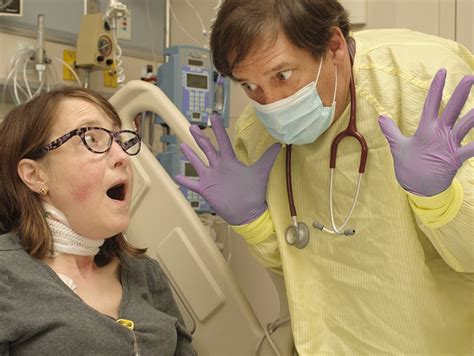
Many adults wish they could go back and offer their younger selves advice, stemming from regrets about financial missteps, relationship choices, career paths, and a lack of self-care, prompting a wave of shared wisdom aimed at helping younger generations avoid similar pitfalls.
A recent online discussion revealed a common sentiment among adults: the desire to impart crucial life lessons to their younger counterparts, offering guidance on navigating the complexities of adulthood and avoiding commonly made mistakes. The thread, which rapidly gained traction, highlighted regrets ranging from financial mismanagement and neglected relationships to career missteps and a lack of self-prioritization. These shared experiences underscore the importance of proactive decision-making and long-term planning in various aspects of life.
One recurring theme was the significance of financial literacy and responsible money management. Many adults lamented not starting to save and invest early enough. As one commenter noted, “Start saving for retirement as early as possible, even if it’s just a small amount.” This sentiment was echoed by others who emphasized the power of compounding interest and the benefits of long-term investment strategies. The regret of not understanding credit and accumulating unnecessary debt was also a common refrain. The advice extended to understanding loan terms, avoiding high-interest credit cards, and building a solid credit score. Several individuals expressed regret over making large purchases, such as cars, without thoroughly considering the long-term financial implications. As the article pointed out, understanding financial basics is a critical life skill that can prevent years of financial hardship.
Another prevalent regret centered around relationships, both romantic and platonic. Many adults wished they had prioritized nurturing their relationships and communicating more effectively. Several commenters expressed regret over letting friendships fade due to neglect or a lack of effort. “Don’t let friendships drift,” one person advised. “Make an effort to stay in touch and nurture those relationships.” In romantic relationships, the importance of open and honest communication was repeatedly emphasized. Adults regretted not addressing issues early on and allowing misunderstandings to fester. The importance of choosing partners wisely, based on compatibility and shared values, was also highlighted. The article underscored that healthy relationships require effort, commitment, and a willingness to work through challenges.
Career-related regrets were also prominent in the discussion. Many adults wished they had pursued their passions rather than settling for jobs that offered stability but lacked fulfillment. The advice to “follow your passion” was a common theme, with many expressing regret over not taking risks and exploring different career paths. Others regretted not investing in their education or skills development. The importance of continuous learning and adapting to changing job market demands was emphasized. Some adults also regretted prioritizing work over personal life, leading to burnout and a lack of work-life balance. The article suggested that finding a career that aligns with one’s values and interests is crucial for long-term happiness and well-being.
The importance of self-care and prioritizing mental and physical health was another recurring theme. Many adults regretted neglecting their well-being in their younger years, leading to health problems and burnout later in life. The advice to “take care of yourself” was a common refrain, with many emphasizing the importance of exercise, healthy eating, and stress management. The need to prioritize mental health was also highlighted, with many adults regretting not seeking help for mental health issues or ignoring signs of stress and burnout. The article emphasized that self-care is not selfish but rather essential for maintaining overall health and well-being.
Several adults also expressed regret over not traveling or experiencing new cultures when they had the opportunity. The advice to “travel while you’re young” was a common theme, with many emphasizing the benefits of broadening one’s horizons and gaining new perspectives. The regret of not taking advantage of opportunities to study abroad or volunteer overseas was also mentioned. The article suggested that travel can be a valuable learning experience that can enhance personal growth and cultural understanding.
Many adults wished they had been more confident and assertive in their younger years. They regretted not speaking up for themselves, pursuing their goals, or taking risks. The advice to “believe in yourself” was a common theme, with many emphasizing the importance of self-confidence and self-esteem. The regret of letting fear hold them back from pursuing their dreams was also mentioned. The article suggested that developing self-confidence and assertiveness can empower individuals to achieve their goals and live a more fulfilling life.
The advice from adults also extended to the importance of living in the present moment and appreciating the small things in life. Many regretted dwelling on the past or worrying about the future, rather than focusing on the present. The advice to “live in the moment” was a common theme, with many emphasizing the importance of gratitude and mindfulness. The regret of not appreciating the simple joys of life was also mentioned. The article suggested that practicing mindfulness and gratitude can enhance happiness and well-being.
Another regret was not forgiving themselves and others for past mistakes. Holding onto grudges and resentment was seen as a burden that prevented personal growth and happiness. The advice to “forgive yourself and others” was a common theme, with many emphasizing the importance of letting go of the past and moving forward. The article suggested that forgiveness can be a liberating experience that promotes healing and reconciliation.
Many adults also regretted not taking more risks and stepping outside of their comfort zones. They felt that they had missed opportunities for growth and adventure by playing it safe. The advice to “take risks” was a common theme, with many emphasizing the importance of embracing challenges and pushing boundaries. The regret of not pursuing their dreams or trying new things was also mentioned. The article suggested that taking calculated risks can lead to personal and professional growth.
The article also touched upon the importance of seeking advice from mentors and learning from the experiences of others. Many adults regretted not seeking guidance from more experienced individuals who could have offered valuable insights and support. The advice to “find a mentor” was a common theme, with many emphasizing the benefits of having a trusted advisor who can provide guidance and support. The article suggested that mentors can play a crucial role in personal and professional development.
Several adults regretted not standing up for what they believed in and remaining silent in the face of injustice. They felt that they had missed opportunities to make a positive impact on the world. The advice to “stand up for what you believe in” was a common theme, with many emphasizing the importance of moral courage and social responsibility. The article suggested that individuals have a responsibility to speak out against injustice and advocate for positive change.
Furthermore, many adults expressed regret over not documenting their lives and preserving memories. They wished they had taken more photos, written in journals, or recorded videos to capture important moments and experiences. The advice to “document your life” was a common theme, with many emphasizing the importance of preserving memories for future generations. The article suggested that documenting one’s life can be a valuable way to reflect on the past and appreciate the present.
The shared wisdom from these adults underscores the importance of proactive decision-making, long-term planning, and self-awareness in navigating the complexities of adulthood. By learning from the mistakes of others, younger generations can hopefully avoid similar pitfalls and live more fulfilling lives. The recurring themes of financial responsibility, relationship management, career fulfillment, and self-care highlight the key areas where individuals can focus their efforts to create a more positive and rewarding future. The article serves as a valuable reminder that life is a journey of learning and growth, and that the experiences of others can provide valuable insights and guidance along the way. As one commenter wisely stated, “Life is a marathon, not a sprint. Pace yourself, learn from your mistakes, and never stop growing.”
The conversation highlighted a generation reflecting on their past choices, attempting to distill their experiences into actionable advice. The variety of regrets expressed, from not prioritizing family to not investing early, showed a comprehensive overview of life’s potential pitfalls. The value in this kind of communal reflection lies in its ability to provide younger generations with a roadmap, or at least a cautionary tale, as they navigate their own journeys. The advice, though broad, resonated with many, suggesting a universal longing for a chance to do things differently and a desire to help others avoid the same missteps. The online forum effectively became a repository of hard-earned wisdom, offered freely in the hope of making someone else’s path a little smoother.
The article further expanded on specific examples, such as the regret of not taking advantage of employer-sponsored retirement plans. Many adults realized too late the power of compounding interest and the benefits of contributing to a 401(k) or similar plan, even if it was just a small amount initially. This regret highlighted the importance of understanding the long-term implications of financial decisions and seeking financial advice early on.
Another common regret was not learning a second language. In an increasingly globalized world, the ability to communicate in multiple languages is a valuable asset, both personally and professionally. Many adults regretted not taking the time to learn a new language when they had the opportunity, recognizing the missed opportunities for cultural immersion and career advancement.
The article also touched upon the regret of not volunteering or giving back to the community. Many adults realized that contributing to something larger than themselves can bring a sense of purpose and fulfillment. They regretted not taking the time to volunteer or support causes that they cared about, recognizing the positive impact that they could have made on the world.
In addition to these specific regrets, the article emphasized the importance of self-acceptance and self-compassion. Many adults regretted being too hard on themselves and dwelling on their imperfections. They wished they had been more kind and forgiving towards themselves, recognizing that everyone makes mistakes and that self-compassion is essential for emotional well-being.
The online discussion also revealed a generational shift in priorities. While previous generations may have prioritized financial security and career advancement above all else, many of the adults in the discussion emphasized the importance of personal fulfillment and work-life balance. This shift reflects a growing recognition that happiness and well-being are just as important as material success.
The article concluded by reiterating the importance of learning from the mistakes of others and making proactive choices that align with one’s values and goals. By taking the time to reflect on their own experiences and seeking advice from trusted sources, younger generations can navigate the complexities of adulthood with greater confidence and resilience. The shared wisdom from these adults serves as a valuable reminder that life is a journey of continuous learning and growth, and that the choices we make today can have a profound impact on our future.
In the digital age, this crowdsourced wisdom offers a valuable resource for those seeking guidance. The anonymity of the online forum likely encouraged honesty and vulnerability, resulting in a collection of authentic and relatable experiences. The article effectively captured the essence of this online conversation, presenting a compelling narrative of regret, reflection, and a desire to help others avoid similar pitfalls. The insights shared offer a practical and accessible guide to navigating the challenges and opportunities of adulthood, emphasizing the importance of proactive decision-making, self-awareness, and a commitment to personal growth.
Frequently Asked Questions (FAQ)
1. What are the most common regrets adults shared in the online discussion?
The most common regrets included not saving and investing early enough, neglecting relationships, not pursuing passions in their careers, neglecting self-care (mental and physical health), not traveling or experiencing new cultures, lacking confidence and assertiveness, not living in the present moment, not forgiving themselves and others, not taking risks, not seeking mentorship, not standing up for their beliefs, and not documenting their lives.
2. Why is financial literacy emphasized so heavily in the advice given by adults?
Financial literacy is emphasized because many adults regret not understanding financial basics, such as saving, investing, and managing debt, early in life. They realize the long-term impact of these decisions on their financial well-being and want to encourage younger generations to avoid similar financial hardships. Understanding financial concepts like compounding interest and responsible credit card use can significantly impact long-term financial stability. One person quoted in the article says, “Start saving for retirement as early as possible, even if it’s just a small amount.”
3. How important is it to prioritize relationships, according to the adults sharing their life lessons?
Prioritizing relationships is deemed crucial. Many adults regret letting friendships fade or not communicating effectively in romantic relationships. They underscore that nurturing relationships requires effort, commitment, and open communication. Neglecting relationships often leads to loneliness and a lack of social support later in life.
4. What is the main message regarding career choices from the adults providing advice?
The main message is to pursue passions rather than settling for unfulfilling jobs for the sake of stability. Many regret not taking risks and exploring different career paths or investing in their education and skills development. They emphasize that finding a career that aligns with one’s values and interests is essential for long-term happiness and well-being, and avoiding burnout by prioritizing work-life balance.
5. Why do so many adults emphasize the importance of self-care?
Adults emphasize self-care because many regret neglecting their mental and physical health in their younger years, leading to health problems and burnout later in life. They advise prioritizing exercise, healthy eating, stress management, and seeking help for mental health issues. They view self-care as essential for maintaining overall health and well-being, not as a selfish indulgence.
6. What kind of financial advice was most frequently given?
The most frequent financial advice centered on the importance of starting to save early, even in small amounts, due to the power of compounding interest. Participants also stressed the need to understand credit, avoid unnecessary debt, and carefully consider large purchases. Understanding and utilizing employer-sponsored retirement plans was also a recurring theme.
7. Beyond romantic relationships, what other types of relationships were highlighted, and why?
Friendships were heavily emphasized. Adults regretted letting friendships drift due to a lack of effort. Maintaining these connections requires active participation and nurturing, providing vital social support networks throughout life. Neglecting friendships often leads to loneliness later in life.
8. How did the advice address the concept of “following your passion” versus practical career choices?
Many adults regretted not pursuing their passions, highlighting the importance of finding a career that provides fulfillment, not just financial stability. The advice wasn’t necessarily to abandon practicality altogether, but rather to find a balance between passion and viable career paths, encouraging exploration and risk-taking to find a more fulfilling career.
9. What were some specific examples given regarding self-care practices?
Examples included prioritizing exercise, healthy eating habits, and stress management techniques. Seeking help for mental health issues, setting boundaries to prevent burnout, and making time for relaxation and hobbies were also mentioned as crucial components of self-care.
10. Was there a recurring theme regarding travel, and what were the main reasons for this regret?
Yes, many adults regretted not traveling more when they were younger. The main reasons included missing opportunities to broaden their horizons, experience new cultures, and gain new perspectives. Travel was seen as a valuable learning experience that can contribute to personal growth and a deeper understanding of the world.
11. How did the adults’ reflections address the idea of confidence and risk-taking?
Many regretted lacking confidence and not taking enough risks, feeling they missed opportunities for personal and professional growth. They emphasized the importance of believing in oneself, stepping outside of one’s comfort zone, and not letting fear hold them back from pursuing their dreams. This encouraged a more proactive and courageous approach to life.
12. What did the adults mean by advising to “live in the moment”?
This advice encouraged focusing on the present rather than dwelling on the past or worrying about the future. It emphasized the importance of gratitude, mindfulness, and appreciating the simple joys of life. This perspective promoted a more positive and fulfilling daily experience.
13. How did the discussion address the concept of forgiveness, both of oneself and others?
Holding onto grudges and resentment was seen as a burden that hindered personal growth and happiness. The adults emphasized the importance of forgiving themselves and others for past mistakes, letting go of the past, and moving forward. Forgiveness was presented as a liberating process leading to healing and reconciliation.
14. What role did mentorship play in the shared regrets and advice?
Many adults regretted not seeking guidance from mentors or more experienced individuals. They emphasized the benefits of having a trusted advisor who could offer valuable insights, support, and direction. Mentorship was highlighted as a crucial resource for personal and professional development.
15. Did the advice touch on social responsibility or standing up for what one believes in?
Yes, several adults regretted not standing up for their beliefs and remaining silent in the face of injustice. They emphasized the importance of moral courage, social responsibility, and using their voice to advocate for positive change in the world. This reflects a growing awareness of the importance of contributing to a better society.
16. What specific advice did they give about documenting life’s experiences?
The advice centered on taking more photos, writing in journals, and recording videos to capture important moments and experiences. This was seen as a way to preserve memories for future generations and to reflect on one’s life journey. The act of documenting was encouraged as a way to appreciate the present and learn from the past.
17. How does this collective advice from older adults relate to the concept of personal growth?
The collective advice highlights various aspects crucial for personal growth, including self-awareness, learning from mistakes, continuous self-improvement, building strong relationships, finding purpose, and contributing to society. It underscores that life is a continuous process of learning and evolving.
18. What is the overall tone of the advice given? Is it optimistic, cautionary, or something else?
The overall tone is a mix of cautionary and optimistic. It’s cautionary in the sense that it points out potential pitfalls and mistakes to avoid. However, it’s also optimistic in its emphasis on learning from these mistakes, pursuing passions, prioritizing well-being, and living a fulfilling life. There is a sense of hope that younger generations can benefit from this shared wisdom and make more informed choices.
19. What generational differences, if any, were reflected in the advice given?
The advice reflects a potential generational shift in priorities. While previous generations may have prioritized financial security and career advancement above all else, the adults in the discussion emphasized the importance of personal fulfillment, work-life balance, and mental health. This suggests a growing recognition that happiness and well-being are just as important as material success.
20. How can younger people effectively apply this advice to their own lives?
Younger people can apply this advice by actively reflecting on their own values, goals, and priorities. They can seek mentorship from trusted individuals, educate themselves about financial matters, prioritize their relationships, pursue their passions, and take care of their mental and physical health. The key is to be proactive in making choices that align with their values and to learn from the experiences of others. Furthermore, to be open to adjusting their course as needed, because life is ever changing.









